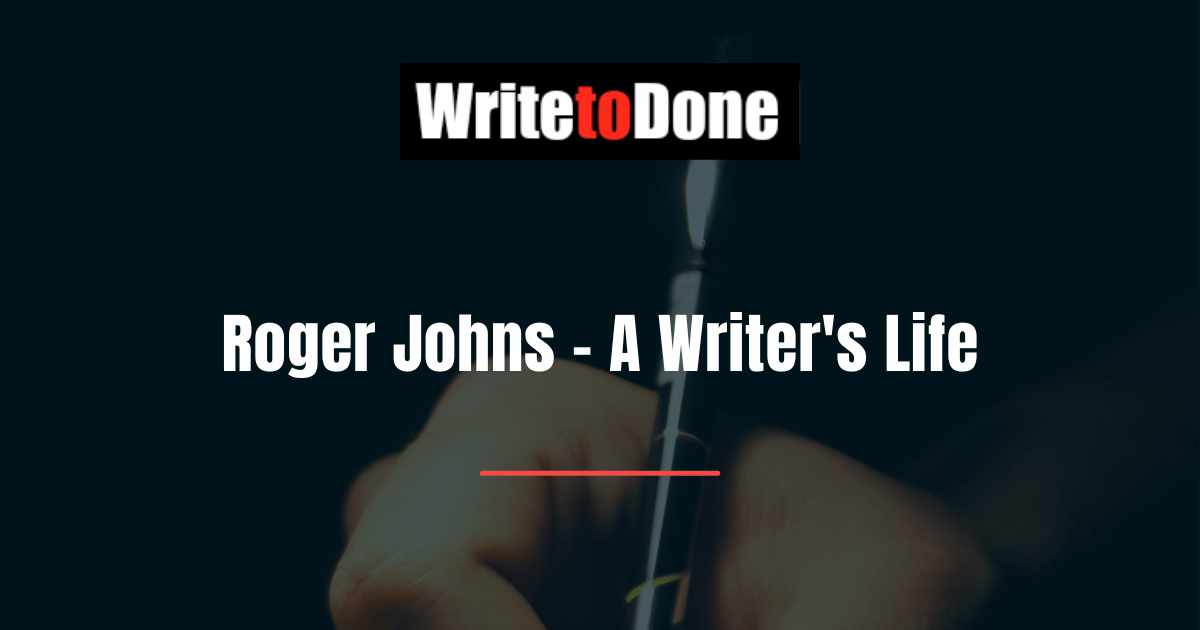Welcome to the second installment in our new series – A Writer’s Life.
A succession of living writers reveal how they first started writing, how they got published and something of their daily routine. You’ll be inspired, learn powerful tips and gain a strong sense of the writing life that awaits you.
This week’s writer is Roger Johns, the creator of tough-as-nails Baton Rouge police detective, Wallace Hartman.
Laura Tong -Editor.
Resistance is Futile: Just Listen to the Little Voice Inside
The first part of my writer’s journey was rather long––a few weeks shy of nine years from the day the idea for my debut novel occurred to me until the day I inked the deal with my publisher. During talks with writers’ groups, I’m often asked what I would have done different to shorten that time. There’s no way to know whether anything would have sped the plow, but I believe two things might have moved things along quite a bit faster.
First, I would have gotten involved with my local writing community much sooner. This is more of a wish than a regret, though, because when I first tried to translate my idea into a book, I was completely unaware of the existence of the “writing community.”
I had no idea things like writers’ clubs, critique groups, writers’ conferences, or beta readers even existed. Do I wish I had become involved sooner? Yes, of course. But before you can get involved with something that’s completely external and foreign, you have to be aware it’s there.
That awareness came, in due course and quite by accident, and I did get deeply involved, much to my benefit. But between the dawning moment when the idea arrived and the day I finished the first draft, there was something important going on inside me that I could have and should have paid closer attention to.
A contest of wills was taking place in my head. The rational, conscious-control part (the Big Voice) and the smarty-pants, instinctive part that’s always talking out of turn (the Little Voice), were competing for my attention.
The louder and more insistent of the two, the Big Voice, commandeered the process and dominated the conversation. And that was not all bad. It gave me sensible advice such as: get organized, read books on how to write a novel and follow the instructions you find there, write every day, keep track of your ideas in a little book so you don’t forget them, be logical, make a plan and stick to it, write the story you want to write. So, I did all of those things, but the process tended to bog down for reasons I didn’t understand until I started listening to the quieter, more interesting Little Voice.
At first, I wasn’t interested in the Little Voice. It seemed more like a nuisance than a legitimate part of the process. Most of my professional life was spent either as a corporate lawyer or a college professor, and those are very logic-driven left-brain careers so, by sheer force of habit, I listened with both ears to the Big Voice blaring from the left hemisphere, and regarded the low-volume commentary from the other side with mild contempt. This turned out to be a big mistake because, with respect to its command to “write the story you want to write,” the Big Voice was dead wrong.
Eventually, out of frustration or desperation or both, I started listening to the Little Voice. It didn’t have a lot to say, but two of its utterances contradicted the Big Voice and broke the logjam in my head. It told me to: (1) quit writing about my idea and start writing about people and how my idea would affect them, and (2) quit writing about the main character I wanted the story to be about and start writing about the character the story actually was about.
The recommendation to write about people instead of ideas should have been a no-brainer but, as a life-long academic, writing about ideas was where my mind was in those early days. It took a while before I realized I was more or less writing a textbook gussied up as a novel, and that not only would no one be interested in reading it, apparently my own mind wasn’t all that interested in writing it.
But even making that change got me only so far. The story remained stubbornly unfinishable until the Little Voice told me to write about a different character. That was definitely not a no-brainer. My assumption, up until then, was that I could write my story about anyone I pleased. Not so. It seems that, in my case, stories are more a matter of discovery than of invention. And, as much as I wanted the story to be about the character I had invented, the story itself wanted to be about a character I needed to discover.
In the end, resistance was futile. The story was going to be what the story was going to be, and no amount of me wanting it to be different mattered. Once this change in my thinking occurred, it took just over two years to get through five or six drafts and then sell the book.
Learning to listen to my Little Voice required focus and a quiet mind and a willingness to trust the instinctive, less conventional aspects of my thinking that vied (sometimes meekly) for my attention.
















